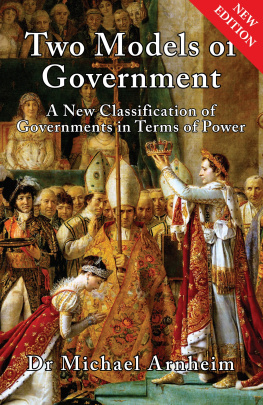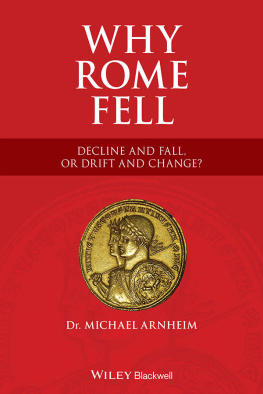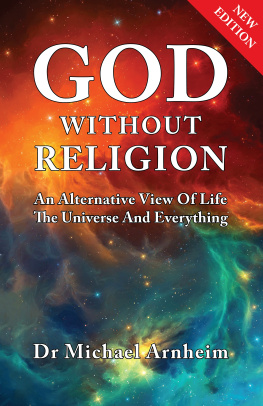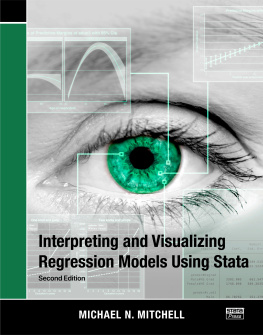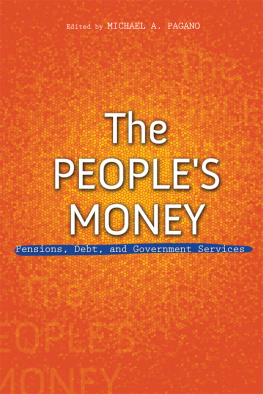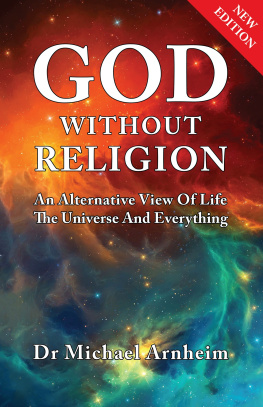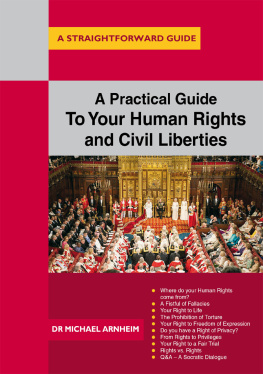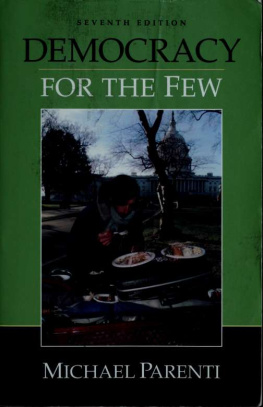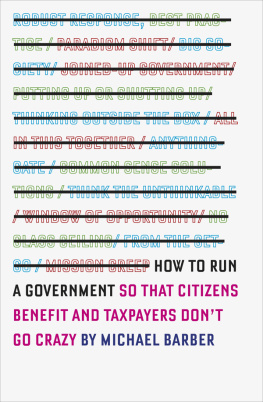Michael Arnheim - Two Models of Government
Here you can read online Michael Arnheim - Two Models of Government full text of the book (entire story) in english for free. Download pdf and epub, get meaning, cover and reviews about this ebook. year: 2019, publisher: Black House Publishing, genre: Politics. Description of the work, (preface) as well as reviews are available. Best literature library LitArk.com created for fans of good reading and offers a wide selection of genres:
Romance novel
Science fiction
Adventure
Detective
Science
History
Home and family
Prose
Art
Politics
Computer
Non-fiction
Religion
Business
Children
Humor
Choose a favorite category and find really read worthwhile books. Enjoy immersion in the world of imagination, feel the emotions of the characters or learn something new for yourself, make an fascinating discovery.
- Book:Two Models of Government
- Author:
- Publisher:Black House Publishing
- Genre:
- Year:2019
- Rating:5 / 5
- Favourites:Add to favourites
- Your mark:
- 100
- 1
- 2
- 3
- 4
- 5
Two Models of Government: summary, description and annotation
We offer to read an annotation, description, summary or preface (depends on what the author of the book "Two Models of Government" wrote himself). If you haven't found the necessary information about the book — write in the comments, we will try to find it.
Two Models of Government — read online for free the complete book (whole text) full work
Below is the text of the book, divided by pages. System saving the place of the last page read, allows you to conveniently read the book "Two Models of Government" online for free, without having to search again every time where you left off. Put a bookmark, and you can go to the page where you finished reading at any time.
Font size:
Interval:
Bookmark:
Kemp House
152 City Road
London, UNITED KINGDOM
EC1V 2NX
London
4 August 2016
- All societies past and present can be classified either as monocracies (including all regimes where power is concentrated in the hands of a single individual) or oligocracies (embracing all forms of minority rule).
- Vaunted democracies are in reality either oligocracies or monocracies.
- The present-day democracies of Britain and the United States are in reality composite oligocracies made up of several disparate elements.
- Oligocracies are by definition regimes with a high degree of inequality, but with variable levels of liberty.
- Oligocracy and inequality are the default features of human society.
- Equality is unattainable except by a radical monocracy like Fidel Castros Cuba, and then only with difficulty and at the expense of liberty and probably of lives as well.
- Equality of opportunity must not be equated with equality.
- Equality of opportunity means an equal opportunity to become unequal.
- Paradoxically, however, for genuine equality of opportunity to exist there has to be equality which is practically unattainable.
- For genuine freedom of expression to exist there also needs to be equality, because the little man standing on his soap-box and shouting his lungs out at Speakers Corner in Londons Hyde Park cannot compete with the media moguls which is why genuine freedom of expression is rare.
- Once these truths are recognised, it becomes clear that for one state to attempt regime change in a foreign country is likely to be futile.
Monocracy and Oligocracy
[I warn the reader that this book should be read carefully and that I do not have the skill to make myself clear to those who are not prepared to be attentive.]
- Monocracy (from the Greek, meaning the power of one person or the rule of one person see Glossary) includes all governments where power is concentrated in the hands of a single individual. It is therefore both narrower and wider than the conventional term monarchy, because it excludes constitutional monarchies such as are found in present-day Scandinavia, Spain, Belgium and the United Kingdom, but it includes regimes such as those of Josip Broz Tito in Yugoslavia, Muammar Gaddafi in Libya, Mao Tse-tung (Mao Zedong), Fidel Castro in Cuba, Francisco Franco in Spain and Adolf Hitler, together with monarchs such as (some of) the Pharaohs of Ancient Egypt, the Roman Emperors from Augustus to Diocletian, France under Louis XIV and Frederick the Greats Prussia, together with the present-day rulers of Liechtenstein, Swaziland and Saudi Arabia. Most controversially, it also covers vaunted democratic regimes such as that of Athens in the 5th century BCE. Monocracy covers leaders who have come to power by birth, election, coup dtat or in any other way.
- Oligocracy (from the Greek meaning the power of the few, or the rule of the few see Glossary) combines aristocracy and oligarchy, and refers therefore to any regime where power is concentrated in the hands of an elite or a minority or more than one elite or minority sharing power whether based on birth, wealth, ethnicity, language, colour, religion or anything else, and whether elected or unelected, and whether their power is formal or informal. Whats wrong, you may ask, with just sticking to aristocracy and oligarchy? Two things. First, it is often hard to decide whether a particular regime is an aristocracy or an oligarchy. Both denote government by a minority, the chief difference being that aristocracy is rule by a hereditary minority while oligarchy refers to minority rule regardless of whether it is hereditary or not. Classical Sparta and the Roman Republic are two examples of regimes that may be labelled as either an aristocracy or an oligarchy. The second reason for inventing a new blanket term for minority government is that, besides referring to a form of government, aristocracy can also refer to a privileged and usually titled class of people who may not have any political power at all like the titled aristocracy in modern Britain, who since 1999 have not been automatically entitled to a seat in the House of Lords and some of whom are not involved in government in any other way either. Oligocracies include classical Sparta and the Roman Republic, as already mentioned, together with such societies as medieval Western Europe, the Venetian Republic from 1268 to 1797 and Japan from 1185 to 1868, as well as modern democracies such as the United Kingdom and the United States, in which power is in the hands of a composite oligocracy made up of several disparate elements.
Font size:
Interval:
Bookmark:
Similar books «Two Models of Government»
Look at similar books to Two Models of Government. We have selected literature similar in name and meaning in the hope of providing readers with more options to find new, interesting, not yet read works.
Discussion, reviews of the book Two Models of Government and just readers' own opinions. Leave your comments, write what you think about the work, its meaning or the main characters. Specify what exactly you liked and what you didn't like, and why you think so.

